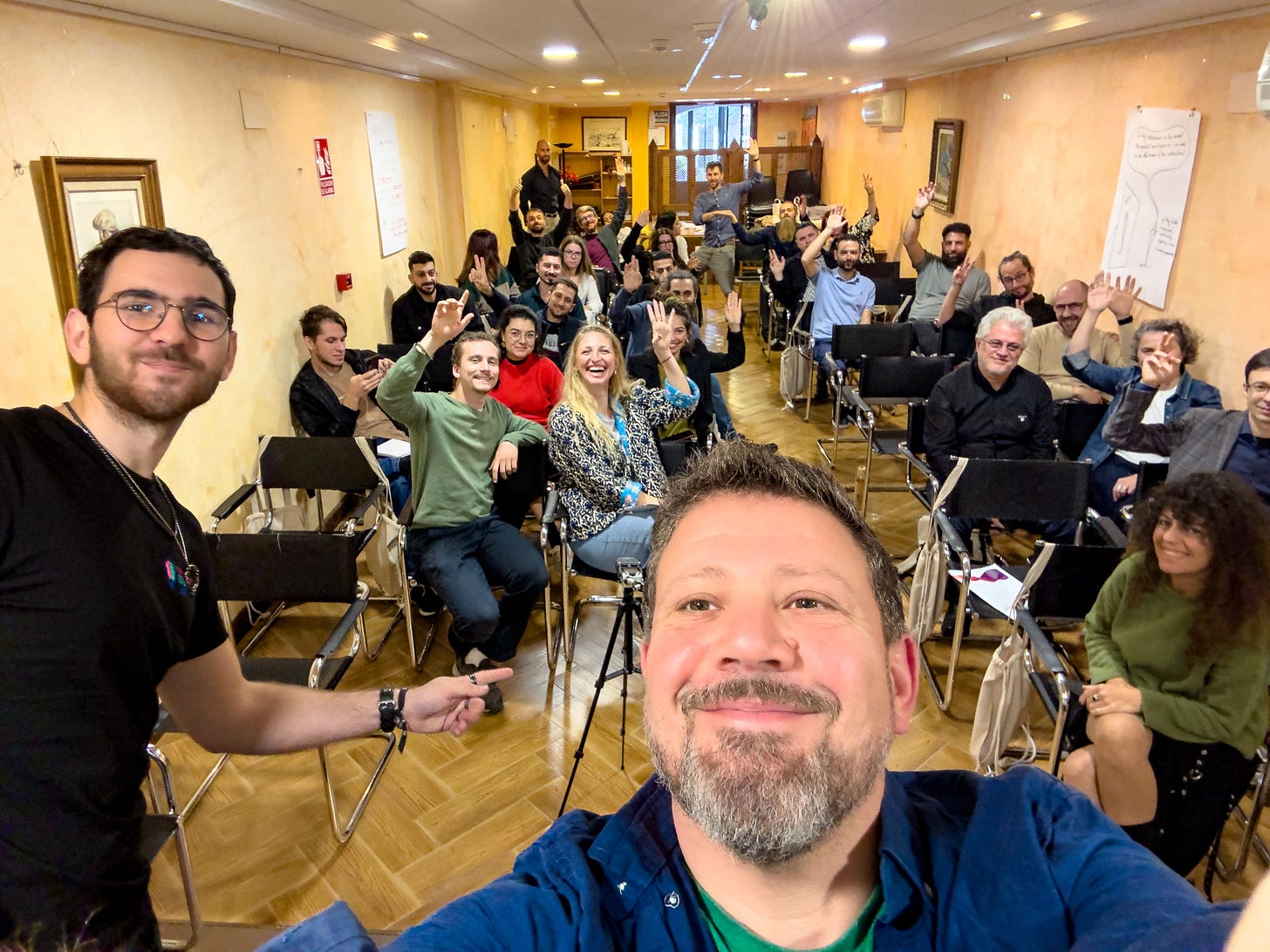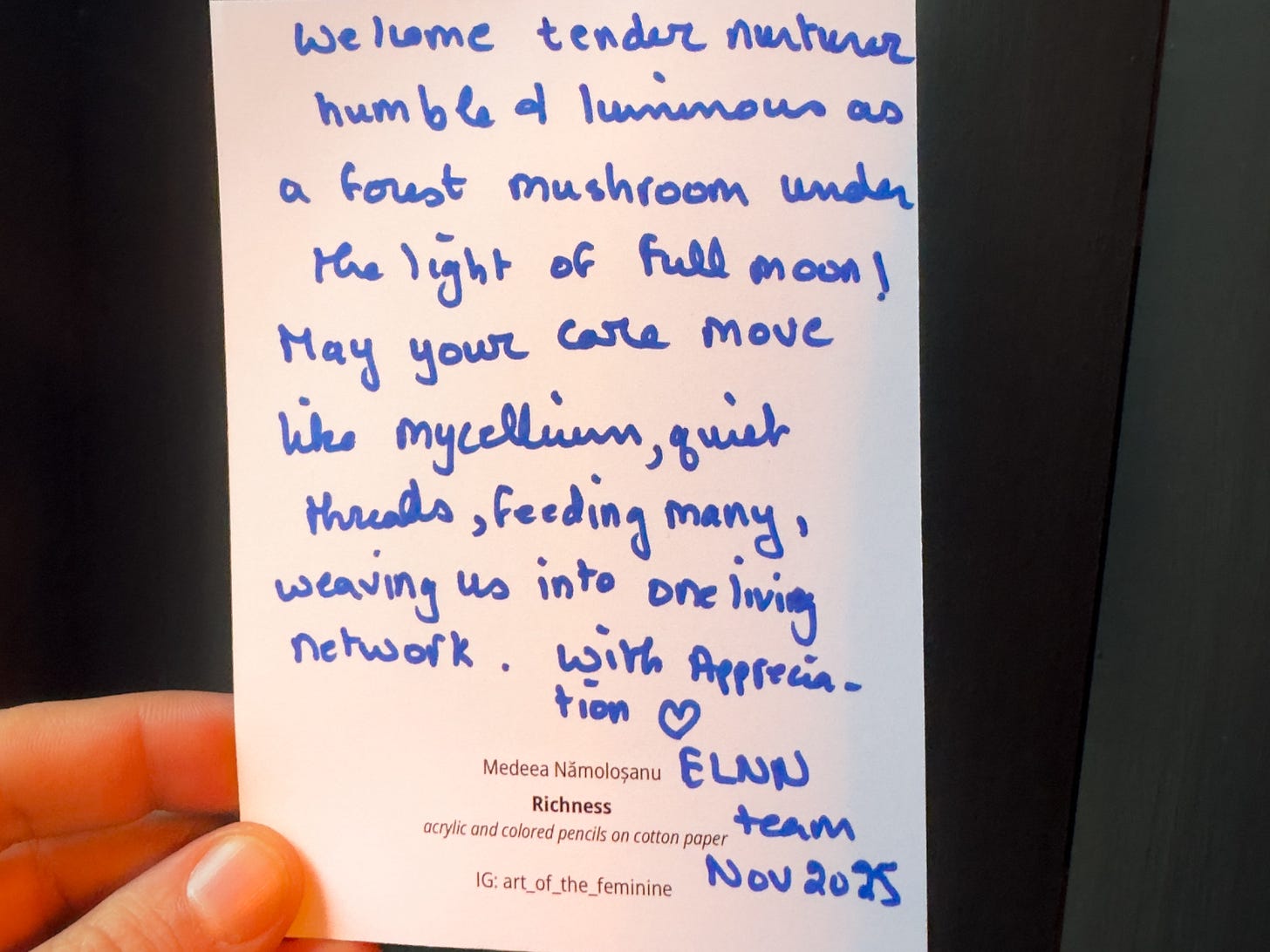Are You Building Community or Just a Prettier Attention Casino?
Adlerian notes from the "Courage to be Disliked" about communities and relationships
TL;DR
In The Courage to Be Disliked, Ichiro Kishimi and Fumitake Koga present ideas from Alfred Adler’s psychology. The core message is that you already belong to a larger human community that goes far beyond any single group, and your worth is not set by a small circle or a leaderboard. Communities work better with horizontal relationships rather than vertical ones. Vertical relationships rank people—teacher over student, expert over beginner—and rely on praise and blame to control behavior. Horizontal relationships place people side by side: equal human value, different roles, encouragement instead of judgment, gratitude instead of scoring. When you keep the larger community in mind, it becomes easier to step out of rooms that demand performance for approval and to build rooms where simply showing up as yourself counts as a real contribution.

Traveling to the ELNN Think Tank, where I was invited to expand my comfort zone by actively participating in discussions around youth non-formal education communities, I felt it was about time to prepare by reading “The Courage to be Disliked”, which was long overdue in my library. I managed to listen to the audiobook, half on my way to, 2nd half on the way back. Being tired and my head still buzzing from the connections and community work I was part of with ELNN's non-formal education strategy and initiatives - I was falling asleep with the magical conversation from the book playing in my ears - and somehow my attention highlighted exactly the insights about community, relationships, and belonging from a school of psychology I was unfamiliar with.
Coming back, I wanted to lay out the summary of what I learned so that I remember it and use it in my work, and I used Flow to dictate what I remembered into a new chat from my Respira ChatGPT project and asked it to flesh out the missing details from the book.
I then went through the output and adapted it to what I already know and do so that it better reflects my current experience.
(Laid out what I did as part of Respira build-in-public and transparency philosophy)
We (community builders, Respira, brands) ship community platforms, community event calendars, bots, onboarding flows, and community rituals. Dashboards glow. Charts climb. And yet many rooms still feel hollow. That hollow comes from confusing activity with contribution.
“The Courage to be Disliked” — a book structured as five nights of dialogue between a philosopher and a skeptical young man. It’s based on Alfred Adler’s psychology, and buried within its pages is perhaps the most radical truth about community I’ve encountered in years:
Belonging is not given. It’s earned through contribution.
But contribution doesn’t mean what you think it means.
In The Courage to Be Disliked, Adler names the trap: performance gets mistaken for presence. Community builders start using posting activity as a proxy for belonging. But that’s not community feeling. That’s anxiety with a newsletter.
“Without judging whether or not people did something, one rejoices in their being there, in their very existence.”
The Performance Trap
Contribution does not equal output.
The baseline contribution is being present: attentive, available, honest. It is about being truer, not louder.
If your community rewards only visible output, you will breed performative behavior: hot takes and busywork. Presence is quieter: listening, showing up consistently, doing the unglamorous coordination that keeps the room safe.
Checkpoint: If nobody would notice you took a week off from posting, but they would notice if you stopped showing up for people, your presence is working.
From Presence to Architecture: Vertical vs. Horizontal
Most online spaces default to vertical: praise and rebuke, statuses, top-10 lists, and the “owner” at the mic. Judgment becomes the glue.
Healthy rooms are horizontal: peers, not performers. Authority exists to serve the circle, not stand above it. Rotate facilitation, make decisions transparent, and empower everyone to contribute. The language shifts from evaluation to encouragement; from “good job” to “thank you”.
Design smells of verticality
Public praise used as control and private rebuke as culture
“Top contributors” emails
Gatekeeping contributions through permission and status
Gamification and leaderboards
Horizontal moves
Rotate facilitation and normalize handoffs
Replace praise with gratitude and specificity: “Your question opened the room”
Publish clear paths for contributing that do not require permission
Understanding Community Beyond the Immediate Group
Adler expands “community” far beyond your remote team Slack or your local Telegram hub. You are part of a larger human web across time. When you see that fabric, you stop contorting to win a smaller room’s approval. You can say the useful, unpopular thing and survive the silence. If the local circle cannot hold it, another one will.
This is not woo. It is operational sanity. You write kinder local rules when you remember the bigger context.
Three Pillars that Actually Move the Needle
Self-acceptance. Know your limits and your lane. Change what is changeable, accept what is not. No self-abuse disguised as standards.
Confidence in others. Not conditional “trust if proven,” but a default posture: comrades, not opponents.
Contribution. Not martyrdom. A felt sense that you are beneficial here, often by simply showing up as yourself.
These three form a loop: self-acceptance lowers defensiveness → confidence in others rises → contribution becomes natural → self-worth stabilizes → deeper self-acceptance.
From “Audience” to “Community”
Self-attachment asks: How am I seen?
Social interest asks: How can I be useful here?
Same platforms, very different energy. The second group builds resilient rooms without chasing it. They are not performing community; they are living it.
The Courage to Be Normal
Chasing “special” is an avoidance strategy. Ordinary presence (on time, prepared, attentive) builds more trust than flashy stunts. Viral tactics are future-facing escapism. Refuge happens in this moment, with these people, at human speed.
What This Changes mean in the Stack
Onboarding
Replace “earn your stripes” vibes with a short “how this room works” and three contribution doors: ask, offer, witness
Prompt the first post for presence, not performance: “What brings you here, and how do you want this space to feel?”
Rituals
Presence Hour: no agenda, shared focus, cameras optional, silence allowed. People can name needs, make offers, or just be
Gratitude threads: weekly, short, specific. No scorekeeping
Language
Ban empty praise. Use thanks + impact: “Your edit made this doc clearer for newcomers.”
Swap “members” → “peers” (or “co-creators” in workshop contexts, “allies” in advocacy, “stewards” for governance, “companions” for cohort learning). Subtle, but it changes posture.
Governance
Rotate facilitation monthly. Publish a one-page “How we hold the room”
Decisions: lightweight proposals with 24 to 48 hours of silent consent
Metrics
Keep your ops metrics, but elevate one question above all:
“Do you feel beneficial here?”
Pulse it monthly. Watch the trend. Everything else is secondary.
The Only Metric That Matters
When people can truthfully say, “I am beneficial to this community,” self-worth stabilizes and contribution compounds. If your room cannot produce that feeling, you have built a prettier attention casino. If it can, you have built a refuge.
Smaller, slower, quieter might underperform the algorithm. It will outperform burnout.
Make the room where it is okay to be here. The rest gets easier.
New here? Respira builds calm systems. SUUNA grows communities. I am Mihai. Welcome in.
If this is the first thing you read from Respira, here is the simple map: Respira builds calm, custom operating systems that help creators and small teams run marketing, sales, and their online presence with clarity and follow-through. SUUNA is our shared space where teachers and communities gather, cross-pollinate, and grow through partnership, not hustle. I am Mihai, a community and tech stack designer, here to make technology useful, humane, and aligned with your work. If this feels like home, you are already part of it. Welcome to the journey.
This is part of the ongoing experiment at Respira — building operating systems for humans who do things, without the hustle, without the performance anxiety, with full presence. If this resonates, you already know where you belong.
What’s your experience with community feeling? Have you found spaces where your presence alone feels like contribution? Reply and let’s talk about it.




